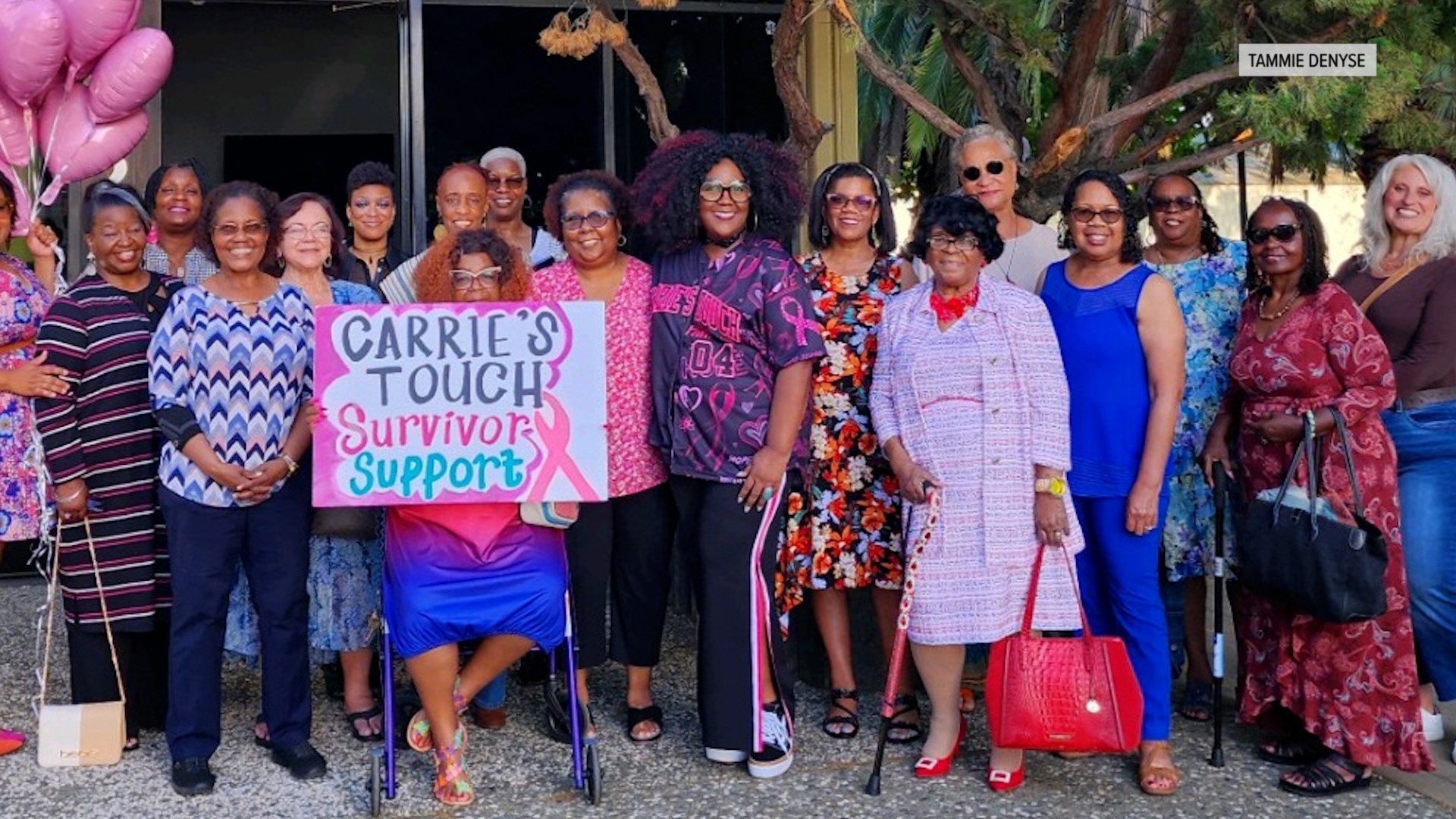SACRAMENTO, Calif. — Tammie Denyse turns to The Bible in good and difficult times. She said the scripture Mark 5:24-28 is the foundation for Carrie's TOUCH in Sacramento.
"Carrie's TOUCH is a nonprofit breast cancer organization that my late sister and I co-founded after I was diagnosed with breast cancer almost 19 years ago," Denyse said. "I was doing things that I loved, but I dont know if I had a lot of purpose. So, I think that my breast cancer journey was a defining moment."
Denyse describes her breast cancer journey as purposeful. She started Carrie's TOUCH in 2006 to help Black women fight breast cancer.
"TOUCH is an acronym for teaching, outreach, understanding, caring and healing," Denyse said. "And we do that through awareness, education, advocacy, research, support and technology."
According to the American Cancer Society, Black women are 41% more likely to die from breast cancer than white women. Breast cancer is often diagnosed at later stages and is more aggressive in African American women than in white women.
"Black women can and do survive this disease," Denyse said. "Join us in ending this daggone 41% statistic and humanize us so that we can start start surviving at the same rates that white women do who are actually diagnosed more often than we are."
According to the American Cancer Society, the reason for racial disparities is largely driven by decades of structural racism leading to a higher risk of lower socioeconomic status.
GET MORE RACE & CULTURE FROM ABC10:
►Explore the Race & Culture home page
►Watch Race & Culture videos on YouTube
►Subscribe to the Race and Culture newsletter
"We need to really in a lot of ways change the system," said Dr. William Dahut, with the American Cancer Society. "So that folks actually receive equitable access and not just access to care. It's not just simply having a doctor, but having access to the best therapy, multiple options and, really, involvement in clinical trials too."
The American Cancer Society explains that socioeconomic differences are linked with having more risk factors for cancer and other diseases and less access to high-quality and timely cancer prevention, early detection and treatment. When it comes to health disparities, one of the main causes is inadequate health insurance.
"The neighborhood you live in and the way you look has an outcome on your cancer treatment," Dahut said. "Environmental aspects in certain areas, historically due to redlining and other things that drove certain populations into areas that are more industrial around highways with greater pollution, we know is more likely to have a negative impact on cancer mortality."
Cara Lamumba is a breast cancer survivor in the Greater Sacramento region. She said Carrie's TOUCH changed her life. She adds that Black women need more support and resources to have a fighting chance.
"We have a long way to go and we can't do it on our own," Lamumba said. "Carrie's TOUCH was there to talk me off the ledge, let me know that it is going to be OK, help me set up everything I needed for doctors appointments and getting me there if I needed a ride, knowing the questions to ask and knowing who to talk to."
Health officials say breast cancer screening can help find cancer early, when it is easier to treat. Women 45 and older should consider getting mammograms every year. With Carrie's TOUCH, Denyse is putting faith into action to help make change.
"I had to get deep down in my own faith, my own beliefs, and understanding of who God was and is," Denyse said. "And what I found was beautiful because God is bigger. My healing journey actually brought me closer to God."
We want to hear from you!
The Race and Culture team's mission is to serve our diverse communities through authentic representation, community engagement and equitable reporting. Accomplishing our goals of inclusive reporting requires hearing from you. Is there a person or place that you want us to highlight? Email us at raceandculture@abc10.com or fill out the form below.

